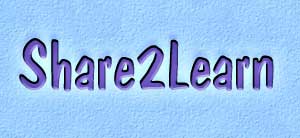 |
Classroom
Community ~helping empower students to be creative, contributing members of the learning environment. |
 |
Classroom
Community ~helping empower students to be creative, contributing members of the learning environment. |
|
Fostering Student Independence and Accountability ~ To help students develop independence and accountability, give them choices of assignments, or have them write contracts for individualized research projects or other assignements. This can be done at a simple level even with primary grade children. Take a look at a sample student contract you can copy and use! |
| Developing Responsibility ~ Using a list of all students alphabetized by first name, have a "Person of the Day" who can be responsible for sharing a book, changing the calendar, mailing letters, handing out lunch tickets, or doing other daily chores usually handled by classroom monitors. Keep the list posted on the classroom calendar, so students know when their turn is coming up. |
| Classroom Parties ~ My second graders plan all my room's holiday parties. I started this about 8 years ago and wouldn't change it ever. The room mothers sometimes get a little out of joint because they LOVE to plan extravagant parties, but when they see what the kids do they love it. I put a suggestion box out before each party with a bunch of Post-It Notes. The kids write ideas down for food, games, and activities. We then talk about all the ideas and select about six. The rule is that any activity must be done in the classroom. If there are to be prizes, the kids must make the prizes in the classroom. The kids then are divided into groups and each group has to plan the game or activity. They have to all come to consensus and that takes time, especially for the first party, which is the Halloween party. They have to write the explanation for the game or activity and also write the rules. They make a big group poster with the explanation and rules. I'm telling you I couldn't have come up with some of the creative ideas that the kids have come up with in the past 8 years. ~~ from Mary Bencini |
| Student Reflections ~ I have my students reflect on what they did after each activity: what they wanted to accomplish, what they actually did, how it affected their goal, what they will continue to do because it helped, what they will change and how they will change it next time. I often emphasize that we cannot change what other people do. We can only change what we do. For instance, we can become responsible for our own learning and ask other students who are distracting us to stop or move away from them if they continue. Or we can ask them a question or for assistance when we think it might get them interested enough to get into the work. The kids continue to come up with ideas for this (of course they see my model throughout the day.) Oral sharing by volunteers of their reflections helps others to think of possibilities. ~ from Tanya Sharon |
Thanks for visiting Share2Learn!